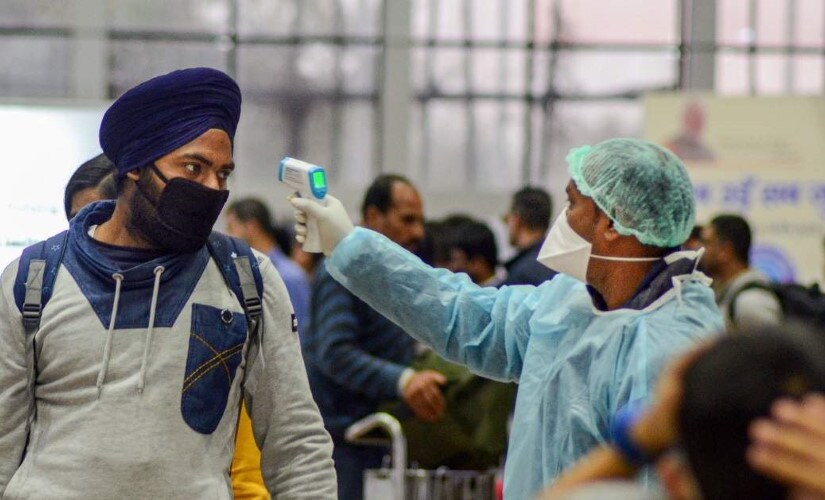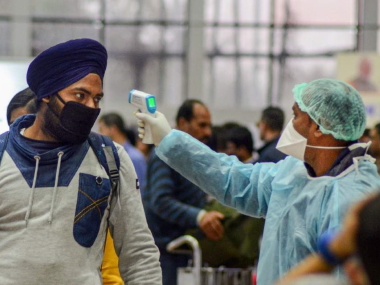Joining the Dots is a weekly column by author and journalist Samrat in which he connects events to ideas, often through analysis, but occasionally through satire *** The phrase of the moment is brief, only two words long — “social distancing”. It is the buzz around the planet thanks to the coronavirus pandemic, for which it is a recommended safety measure. The idea is simple: put at least six feet distance between yourself and the next person. In pursuit of such distance, everything everywhere is being cancelled, from protests in India to prayers in Turkey to rock concerts in Europe. Flights around the world have been scrapped as cities, regions and even whole countries have gone into lockdown. The world is retreating behind borders, walls and doors. The expression “social distance” itself has two meanings, according to the dictionary. The second meaning, “the avoidance of close contact with other people during the outbreak of a contagious disease in order to minimize exposure and reduce the risk of infection”, is the one that’s now in vogue. The first meaning of the expression however comes from sociology, not medicine, and refers to the “degree of acceptance or rejection of social interaction between individuals and especially those belonging to different social groups (such as those based on race, ethnicity, class or gender)”. [caption id=“attachment_8160911” align=“alignnone” width=“825”]  A medic official uses thermal screeing device on a passenger in the wake of deadly coronavirus. Press Trust of India[/caption] The last 150-odd years have been revolutionary, in countries and societies around the world, in diminishing social distances between races, ethnicities, genders and classes. This period had also seen an accompanying change in the form of reduced physical distance between members of different races, ethnic groups, genders and to a lesser degree, of classes. Racial segregation as a government policy existed in the United States that day in December 1955 when Rosa Parks, a black woman, was arrested for not moving to the back of a bus because seats in the front were reserved for white people. It was alive and well in the form of apartheid in South Africa until at least 1990, when Nelson Mandela was released after 27 years in jail for the crime of fighting against racial segregation. The emphasis of such policies was on enforcing social distance in physical terms between races, which thus continued into the none too distant past. Similar restrictions operated in India in the matter of caste. Members of different castes did not live in mixed communities, eat together, or inter-marry. The line of untouchability was observed pathologically by many. Interaction between genders in public spaces was also strictly regimented. Whether it was Victorian England or undivided India, the social distance between men and women was maintained no less rigidly than the distance between races and castes. All these distances still exist today, to a lesser degree than they did in the past. Despite the revolutionary changes of the past century and half, inequalities of race, caste and gender are still very much around, to say nothing of inequalities of wealth. There are some new public spaces, such as the Delhi metro, which are shared equally by people from a wide range of classes, but on the whole, the rich and poor still do not share public or private spaces. The historical trend of the shrinking of social distances was one that accompanied the shrinking of distances due to advances in communication technologies. Voyages that used to take months became trips that could be done in hours. An 1842 article in The Penny Magazine of London on steamship communication with India marvelled that, “The improvements effected within the last seven years in the means of communication between England and India are far more extraordinary than any of the changes wrought by the railways in this country. Sixty years ago, the voyage from London to Calcutta usually occupied (between) five and six months.” In 1836, a steamship, the Hugh Lindsay, brought down the journey time from Bombay to London to a mere fifty days. Now it takes 10 hours by air from Bombay to London. The coronavirus is bringing that world-historical trend of fast, easy travel to a sudden, if temporary, halt. Although flights between London and Mumbai have not yet been cancelled, the Indian government has suspended all tourist visas until 15 April. Other countries are taking similar steps. A lot of flights between cities around the world increasingly stand cancelled. Even where flights still operate, there are few fliers. The death of distance that had been wrought by technology is being undone, even if only for a while, by the life of this pandemic. An increase in social distance between ethnicities is also in evidence. There have been reports from various cities and countries of people avoiding those who look Chinese. In India, students from the Northeast have reported catcalls of “coronavirus” in a departure from older slurs. It may be the turn of white people next. If the epicentre of the disease shifts to Africa, black people are likely to face similar discrimination. The same is likely to happen to South Asians if the numbers multiply here. A heightened suspicion towards foreigners in general, and those of whichever racial type is viewed at the moment as most likely to be infected by the virus, in particular, is already happening. The suspicion towards those of lower classes will inevitably follow if the disease extends beyond those with international travel histories to take root in the local population. The poor who earn their livings as street and bazaar vendors, or daily labourers, cannot work from home. They mostly don’t have N95 masks or hand sanitisers. They also live and travel in more cramped spaces than those who can afford big houses and cars. As a result, they will be both more exposed, and less able to practice “social distancing”. They will also be less able to afford proper treatment. The virus may not discriminate between human beings on the basis of race, religion, caste, gender or class, but people and societies do. The economic hit from the coronavirus pandemic will not be the only one. The mantra of “social distancing”, necessary as it is in the present situation, has already dealt a blow to ideas of freedom of movement. This is only the beginning. If the pandemic persists, it may also hit the ideas of liberty and equality that had brought about some reduction in social distances between races, nations and classes in the last 150-odd years.
The coronavirus may not discriminate between human beings on the basis of race, religion, caste, gender or class, but people and societies do.
Advertisement
End of Article


)

)
)
)
)
)
)
)
)



